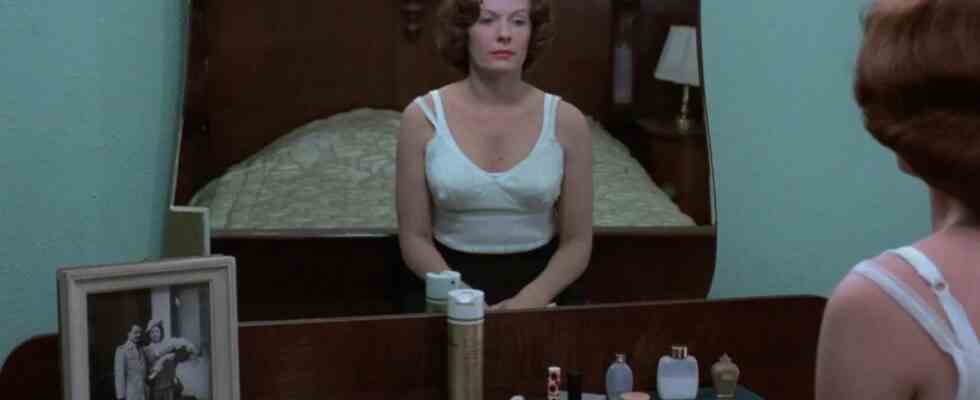A powerful jolt went through cinema history on Thursday. That evening presented the British film magazine Sight & Sound presents the results of their new survey for the “Greatest Films of All Time”, which has been carried out every ten years since 1952. And for the first time, a film by a female director is at the top, “Jeanne Dielman, 23, quai du Commerce, 1080 Bruxelles”. Filmed by Chantal Akerman in 1975 when she was twenty-five years old, she died in Brussels in 2015. And a second woman made the top ten, Claire Denis with her laconic portrait of the Foreign Legionnaire “Beau Travail” from 1998. The number of eligible voters in the poll almost doubled compared to 2012, so there was a small boost in diversity.
This best-of ranking, to which Sight & Sound Invites film critics and filmmakers from all over the world, has become a legendary institution and is hotly debated – even by people who otherwise find lists rather dubious and unimportant. For decades, the undisputed leader of the top ten was Orson Welles’ Citizen Kane, followed by Akira Kurosawa and Yasujiro Ozu, Federico Fellini and Stanley Kubrick (whose 2001 is this time in a separate list that counts only filmmakers won the top spot), Carl Theodor Dreyer and “Singin’ in the Rain”. Ten years ago there was the fall of the throne, “Citizen Kane” was supplanted by “Vertigo”, Hitchcock’s ultra-somnambulistic dream film.
That “Jeanne Dielman” is a masterpiece and a worthy frontrunner is undeniable and no secret, the film has been celebrated and studied for decades. The fact that fewer people have seen it than “Vertigo” and Co. is because “Jeanne Dielman” is more likely to run in cinematheques or arthouse cinemas than in large cinemas (or as a TV repeat) – and is three and a quarter hours long.
Chantal Akerman’s masterpiece is a solitaire, the life of a middle-class housewife in Brussels, she plays Delphine Seyrig – you know her from “Last Year in Marienbad” or from various late Buñuel films -, her reddish blonde hair is artfully undulated, as has been the fashion since the sixties was. You follow her in long shots (at least as precisely as Hitchcock’s) as she goes about her daily routine.
Many praise “Jeanne Dielman” as a great feminist film
She is a single mother, wakes her son in the morning, they eat together in the evening, she peels potatoes in the kitchen, frys schnitzel – flour and breading, egg yolk everything is filmed in detail – she goes shopping and takes a tea break in a café. When she goes from one room to another in the apartment, she carefully turns off the light. A life that’s all right. In the late afternoon a man is at the door, Jeanne Dielman is improving her household money – that commerce it is hinted at in the title of the film – with prostitution, for which she prepares her bed as meticulously as her schnitzel.
Many hailed “Jeanne Dielman” as the great feminist film of the last half century. The fact that it has now moved to the top of the top ten may mean it gets featured more and seen by more people. And that you could clarify with him what feminism actually means, in the cinema and in general – how glamor and everyday life, loneliness and lust interact. In terms of its magical consistency, “Jeanne Dielman” is in no way inferior to the previous leader, “Vertigo”.

